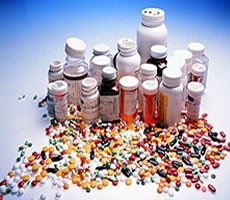
The German Cooperation of Ghana has organised a workshop to adequately prepare stakeholders in the pharmaceutical industry on the modalities to fight substandard and counterfeit medicines trading in the country.
The initiative is to help the stakeholders to brainstorm on how to strengthen members of the pharmaceutical society to import high quality and sufficient medicines that are effective for treatment of ailments in Ghana and West Africa.
Dr Holger Till, Deputy Country Director, Deutsche Gaselleschaft f?r Internationale Zusammenarbeit (GIZ) said the project would build up the pharmaceutical sector to provide good pharmaceutical services to the people, especially those in the rural areas.
The GIZ is collaborating with private and public institutions to strengthen the capacity development of pharmaceuticals societies while supporting the local production of medicines to make it accessible to boost the system.
Dr Till observed that challenges such as insufficient capital, the supply chain system, lack of transportation and inadequate storage facilities have contributed to the improper functioning of the pharmacies, paving way for infiltration of counterfeit medicines in the system.
He said the workshop would help stakeholders develop concrete plans to ensure that quality medicines are brought into the country
“GIZ is interested in providing funds for the training of pharmacist’s to ensure good and professional pharmaceutical care gets to the rural areas,” he added.
Dr Till, however, urged all institutions to contribute their quota, bearing in mind that as a multi-stakeholder project, their services are required to transform the sector to enhance quality healthcare.
Mr Ben Botwe, a Pharmacist, noted that although there is access to affordable high quality medicines, the issue of counterfeit medicines is a complex one worldwide, and expressed the hope that the project would deal with the issue head on.
Mr Botwe said in order to ensure availability and affordability of quality medicines, the country ought to develop self-sufficiency in drug development and manufacturing, in line with international standards, supported with regulated and market surveillance.
He said the lack of qualified human resource base in the pharmaceutical manufacturing sector necessitated the employment of highly paid expatriates.
He appealed to stakeholders, especially the Ministry of Health to help make the three-year project materialise, to improve access to quality and affordable essential medicines.
The Ministry of Health, DHL, MERCK, ABAXIS, National Health Insurance Authority, Pharmacy Council, Fidelity Bank and ProCredit are the partnering institutions.